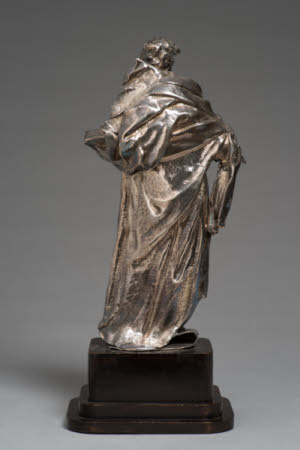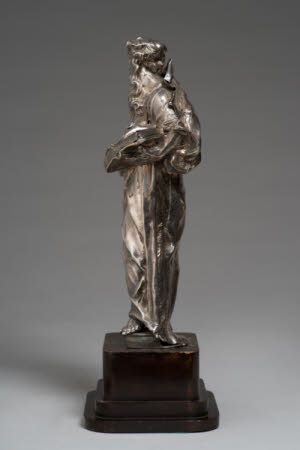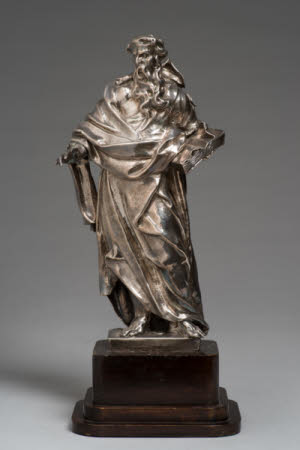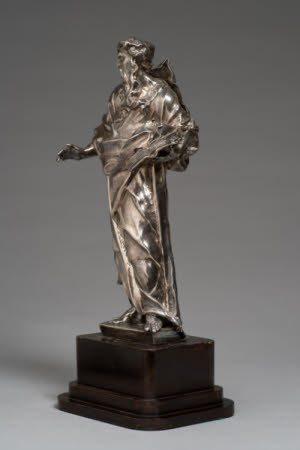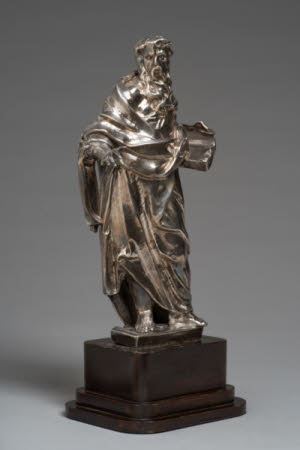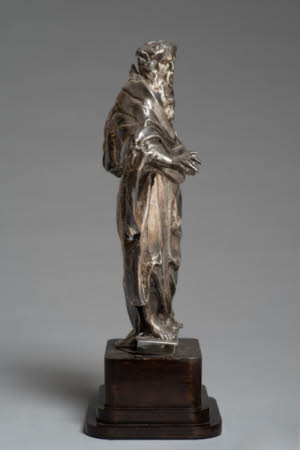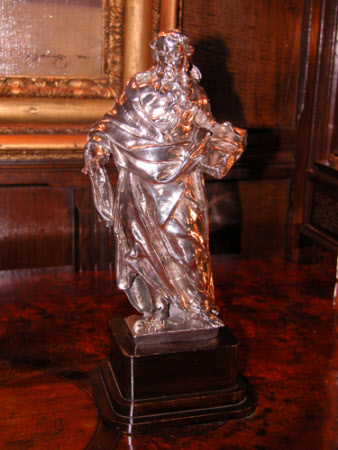Saint Paul
Italian School
Category
Art / Sculpture
Date
c. 1625 - c. 1675
Materials
Silver
Measurements
284 x 122 x 80 mm
Place of origin
Italy
Order this imageCollection
Anglesey Abbey, Cambridgeshire
NT 516408
Summary
Silver, statuette of Saint Paul, Italian School, c. 1625-75. A standing figure of a bearded and heavily robed saint, probably Saint Paul, looking to his right, holding a holy book in left hand and his right hand held up before him. Made in Italy, possibly in Rome, in the 17th century. The figure raised from sheet silver, the body formed from a cylindrical section seamed and soldered at sides, extensively hammered and worked, especially on the robes. Some holes in the surface, for example under right arm. Mounted a later silver base and ebonised wood stand. Two small holes in the silver base to right of right foot.
Full description
Together with its companion saint (NT 516409), this lively statuette may originally have formed part of a group of figures of saints adorning a tabernacle. The ensemble might have looked something like the gilt-bronze and lapis tabernacle made by Gian Lorenzo Bernini (1598-1680) for the Chapel of the Most Blessed Sacrament in St Peter’s, Rome. Commissioned in 1629 but not completed until 1675, the tabernacle is in the form of a circular temple, around the dome of which are placed figures of the twelve Apostles (Jennifer Montagu, Gold, Silver and Bronze. Metal Sculpture of the Roman Baroque, New Haven/London 1996, pp. 62-72, figs. 84-100). The sculpture seems to show some awareness of Bernini and his Baroque style. It may have been made in Rome, but could also have been produced in another centre, such as Naples to the south of Rome or Bologna to the north. Jeremy Warren 2019
Provenance
Bequeathed to the National Trust by Huttleston Rogers Broughton, 1st Lord Fairhaven (1896-1966) with the house and the rest of the contents.
Credit line
Anglesey Abbey, The Fairhaven Collection (The National Trust)
Marks and inscriptions
Bottom of silver base: 156m/AYO/Abg [?]
Makers and roles
Italian School, silversmith
